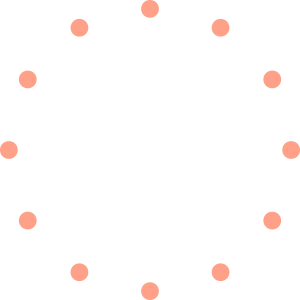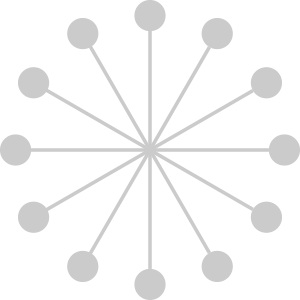Information Use
Osong Bio Promotion Foundation


















Terms of Use
Chapter 1. General Provisions
Article 1. (Purpose)
- The purpose of these provisions is to stipulate the conditions for using all the services (“the Services) provided by Osong Bio Foundation (“the Foundation”), which include its homepage, e-mail, and personal homepages, and the basic terms for running the Services.
Article 2. (Definition of Terms)
The terms used in these provisions are defined as follows.
- Member: A person who has made a contract with the Foundation to use the Services, registered as a member by providing his or her personal information (name verification), and been given a membership ID.
- ID: A combination of letters and numbers selected by a member and approved by the Foundation for identifying the member and using the Services.
- Password: A combination of letters and numbers selected by a member for privacy.
- User: A person who uses the Services provided by the Foundation in accordance with these provisions.
- Manager: A person appointed by the Services provider for the overall management and operation of the Services.
- Withdrawal (Termination): An act a member takes to terminate the contract for using the Services.
Article 3. (Taking Effect and Making Changes)
- The contents of these provisions take effect when posted on the Foundation’s homepage or notified otherwise.
- The Foundation may make changes to these provisions when deemed necessary, and the changed provisions take effect in the same way as specified in the first clause.
- If a member disagrees with the changed provisions, the member may request the membership withdrawal, and if a member continues to use the Services after the changed provisions take effect, it is considered the member has agreed with the changed provisions.
Article 4. (Regulations to Comply With)
- Items not stipulated in these provisions comply with Electronic Communication Fundamental Law, Telecommunications Business Act, Korea Internet Safety Commission’s regulations or other relevant laws and regulations.
Chapter 2. Contract for Using the Services
Article 5. (Entering into the Contract for Using the Services)
- The contract for using the Services is entered into by the Foundation’s approval on the application by a user and the user’s agreement on the provisions.
Article 6. (Application for Using the Services)
- A user may apply for using the Services by filling out the application form designated by the Foundation online.
Article 7. (Application on Using the Services)
- If a member fills out the application form correctly, it will be approved.
- Approval may be pending in the following cases until the issue that restricts the application is resolved.
- 1. Lack of capacity for the Services
- 2. Technical difficulties
- 3. Other situations that make approval difficult
- Approval may not be given to the following applications.
- 1. Application without the real name
- 2. Application with another person’s name
- 3. Incorrect information
- 4. Purpose to disrupt the law and order or harm public morality
- 5. Any condition that does not meet the application requirement
Article 8. (Making Changes to the Contract)
- A member may look up and change his or her information anytime. A member should revise the information if there has been any change since the time of submitting the application, and will be responsible for any problem caused by a failure in revision.
Chapter 3. Rights and Responsibilities of Contracting Parties
Article 9. (The Foundation's Responsibilities)
- The Foundation has the responsibility to make an effort to provide the Services consistently and safely in accordance with the law and these provisions.
- If an opinion or complaint from a member is deemed fair by an objective standard, the Foundation should handle it immediately through a proper procedure. However, if it is difficult to handle it immediately, the Foundation should notify the member of the reason and the planned schedule.
- The Foundation should take technical and administrative measures to protect personal information for the members to use the internet Services safely in accordance with ‘the act on personal information protection by public institutions.’
- When the Foundation fulfills the purpose for collecting certain personal information, it must destroy the information at once. However, the following are exceptions.
- 1. It is necessary by the law to keep the information.
- 2. The Foundation notifies the user of the retention period beforehand.
- 3. The Foundation obtains the user’s consent.
- The Foundation collects information about a member through the information the member provides in signing up for the membership or applying for using the Services, and the member’s personal information is used only for carrying out the contract and providing the Services stipulated in the contract.
- The Foundation does not reveal or distribute a member’s personal information obtained for providing the Services to a third party without the member’s consent. However, the Foundation may provide the information if a government agency demands it by a regulation such as Electronic Communication Fundamental Law, if a crime investigation requires it or if there is a request through a procedure by a relevant law.
Article 10. (Member’s Responsibilities)
- When using the Services, a member must NOT :
- 1. Use another member’s ID wrongfully.
- 2. Copy and publish the information the member has obtained from the Services; or provide it to a third party.
- 3. Violate the Foundation’s or a third party’s copyright and other rights.
- 4. Distribute any content threatening public order and morality.
- 5. Do anything considered related to a crime by an objective standard
- 6. Transfer, post, publish or mail any content which is vulgar, obscene or insulting, or invades another person’s privacy.
- 7. Disguise the source of content transferred from the Services.
- 8. Collect or save another user’s personal information.
- 9. Harm public morality and other social orders
- 10. Hack or spread a computer virus.
- 11. Send such content as advertisement message consistently to a person against the person’s will.
- 12. Disrupt the stable operation of the Services
- 13. Violate other relevant regulations
- A member may not do business activities using the Services, and the Foundation is not responsible for any result from such business activities.
- A member may not transfer and give the member’s rights and other positions in the contract to another person or provide them as collateral.
- A member must log out properly after each use of the Services, and the Foundation is not responsible for any damages resulting from stolen information caused by a failure of logging out.
- A member must report to the Foundation if his or her ID has been used illegally.
- A member must abide by these provisions and the guidelines of the Services.
Chapter 4. Using the Services
Article 11. (Providing the Information)
- The Foundation may provide members with various information, if deemed necessary, to use the Services by mail, SMS (cellular phone text messages) and other means.
- A member may refuse to receive this information.
Article 12. (Managing and Deleting Member’s Posts)
- The Foundation may delete any content posed or provided by a member without prior notification in the following cases.
- 1. It slanders another member or a third party
- 2. It harms public order and morality
- 3. It is considered to be in relation to a crime.
- 4. It violates the Foundation’s or a third party’s copyright and other rights.
- 5. The member posts pornographic material or a link to a pornographic website on his or her homepage and the bulletin board.
- 6. It violates other relevant regulations.
Article 13. (Copyright of Contents)
- The copyright of a content belongs to the person who has posted it, and a member may not process and sell any information obtained from the Services.
Article 14. (Service Hours)
- The Services are available for use year-round 24 hours a day unless there is any work-related or technical difficulty. However, the Services are not available in times of routine maintenance.
Article 15. (Responsibility for Using the Services)
- A member must not hack, link to pornographic websites, advertise for commercial purpose or distribute commercial software illegally by using the Services. The Foundation is not responsible for any sales result, loss and legal actions taken by relevant parties caused by such activities.
Article 16. (Stopping the Services)
- The Foundation may stop the Services in the following cases.
- 1. The equipment for the Services needs to be repaired.
- 2. The electronic communication provider stipulated in Electronic Communication Fundamental Law stops providing electronic communication services.
- 3. A system check is needed.
- 4. Any other instance of force majeure.
- The Foundation may restrict or stop a part or all of the Services when the regular use of the Services is not possible due to a national emergency, power failure, equipment defect or server overload caused by too many users at once.
Article 17. (Use of Mail Service)
- The Foundation has a policy to manage dormant accounts in order to reduce an unnecessary waste of storage space taken up by spam mails sent to members who have not logged in for a while or have not used e-mail and unattended mail boxes as well.
- If a member has not logged in for six months since the membership sign-up, the Foundation may keep the member from receiving mail. If a member has not logged in for one year, everything in the member’s mailbox will be deleted and the member will be solely responsible for the loss.
Article 18. (Prohibiting on Sending Spam)
- Spam is unsolicited advertisement mail with a commercial purpose sent through information and communications network, and illegal spam means any advertisement mail sent or posted violating ‘Act on Promotion of Information and Communications Network Utilization and Information Protection, etc.’
- A member must not send spam mail violating the regulation by using the Services provided by the Foundation.
- A member must not send a mail with content harming public order and morality.
- member should comply with the standards of advertisement mail stipulated in ‘Act on Promotion of Information and Communications Network Utilization and Information Protection, etc.’
- A member is solely responsible in terms of civil and criminal liabilities for any result from sending spam or illegal spam.
Article 19. (Restriction on Sending Bulk Mail)
- The Foundation may keep a member from sending bulk mail (including non-commercial types) using the Foundation’s service system. However, the Foundation may send mailing service to members.
Article 20. (Prohibition on Sending Spam Overseas)
- A member must not send advertisement mail in Korean overseas to foreigners who do not understand Korean.
- To send advertisement mail overseas to foreigners, a member must make out the mail in English or the language of the relevant country. However, if the recipient expresses refusal, the member should stop sending it.
Article 21. (Measures for Spam Sender)
- If a member sends spam or advertisement mail with the member’s ID and it is reported as spam afterwards, the Foundation may restrict or terminate the member’s account or mailing service.
- If a member sends spam violating a regulation, the Foundation may restrict or terminate the member’s account or mailing service.
- The Foundation will notify a member of restricting or terminating the members’s account or mailing service beforehand. However, if such prior notification is difficult, the Foundation may take measures first and notify afterwards.
Articl 22. (Restriction on Spam Mail)
- The Foundation considers the following as spam and may restrict the mailing service.
- 1. Mail violating ‘Act on Promotion of Information and Communications Network Utilization and Information Protection, etc.’
- 2. Bulk mail with a commercial purpose sent without recipients’ consent
- 3. Mail with information on adult websites and obscene content
- 4. Illegal mail on ‘loan’ or ‘chain letter’
- 5. Mail impersonating the manager or spreading false information
- 6. Phishing mail intended to collect personal information
- 7. Bulk mail sent from an unidentifiable IP (Receiving mail quantity will be restricted.)
- 8. The number of spam reports exceeds the standard and it is considered spam by an objective standard.
Article 23. (Procedure of Handling Spam Mail)
- The Foundation runs a center for spam mail reports to consult and handle complaints on spam mail.
- If the center receives a complaint report, it sends the relevant mail to the mail manager of the Foundation for a review to decide whether the mail is spam or not. If the spam mail sender is a member of the Foundation, a warning to stop sending the mail will be sent to the sender and the Services will not be available for the sender.
Article 24. (Prohibition on Avoiding Opt-Out)
- A member must not send advertisement mail containing a fabricated mail header or the member’s false information (name, e-mail address, phone number and mailing address) to avoid an opt-out.
- A member must not set up a button or link for opt-out falsely to avoid an opt-out.
Article 25. (Use of Personal Homepage)
- A member is responsible for managing the bulletin board, visitors’ views and posts on the member’s homepage.
- A member may not delete or modify materials provided by the Foundation.
- A member may not post any material that harms public order and morality or violates a third party’s copyright and other rights. The member will be solely responsible for any result from posting such material.
- The Foundation has a policy to manage dormant accounts in order to keep dormant hompages unattended for a long time from being used for a malicious code circulation or a stopover for a financial fraud.
- If a member has not logged in for two years since the hompage setup, the Foundation deems the member is no longer willing to run the homepage and everything in the storage box of the homepage will be deleted and the member will be solely responsible for the loss.
- If a member wishes to close his or her hompage, all data (including posts) will be deleted and the member will be responsible for any loss from closing the personal homepage. The Foundation is not responsible for the loss.
- If a member’s homepage is forced to close due to a violation of these provisions, the Foundation is not responsible for any loss of data from the personal homepage.
Chapter 5. Termination of Contract and Restriction of Use
Article 26. (Termination of Contract and Restriction of Use)
- If a member wishes to terminate the contract for using the Services, the member needs to apply for termination in person on the member information page of the Services. The Foundation will check the member’s identification and proceed.
- The Foundation may terminate the contract for using the Services or keep a member from using the Services without prior notification if a member does the following, and the Foundation will not be responsible for any disadvantage resulting from this.
- 1. Steal another person’s ID and password.
- 2. Disrupt the operation of the Services on purpose
- 3. Apply for the membership with false information
- 4. Duplicate registration with another ID
- 5. Spread content harming public order and morality
- 6. Harm another person’s reputation or cause disadvantage to the person
- 7. Use the Services with a purpose to hinder national or public interest
- 8. Send a large volume of information or advertisement to disrupt the stable operation of the Services.
- 9. Spread a virus program that causes a malfunction of information and communication equipment or destruction of data.
- 10. Violate the Foundation’s or a third party’s copyright.
- 11. Use another person’s personal information, user ID and password wrongfully
- 12. Receive a correction request from an outside institution such as Korean Internet Safety Commission or an authoritative interpretation by National Election Committee for an illegal election campaign.
- 13. Post pornographic materials or links on the member’s homepage, bulletin board, etc.
- 14. Violate these provisions and other regulations.
Chapter 6. Immunity
Article 27. (Immunity Clauses)
- The Foundation is not responsible for any information and materials a member obtains from using the Services.
- The Foundation is not responsible for the credibility and accuracy of the information, materials and facts posted by a member.
- The Foundation is not responsible for not being able to provide the Services due to a natural disaster or any other instance of force majeure.
- The Foundation is not responsible for any loss resulting from the electronic communication provider’s stopping electronic communication services or not providing them properly.
- The Foundation is not responsible for any loss resulting from not providing the Services due to inevitable instances of emergency inspection, extension and replacement of the system, repair or construction.
- The Foundation is not responsible for any trouble of the Services from a cause attributable to a user.
- The Foundation is not responsible for anything in relation to commodity or money transactions between members or between a member and a third party with the Services used as medium, or for psychological damage a user suffers from another user in using the Services.
Article 28. (Judicial Jurisdiction)
- If legal action is taken due to a conflict from using the Services, the court of the region where the Foundation is located will have exclusive jurisdiction.
Supplementary Provisions
- These provisions are effective from January 2, 2007.